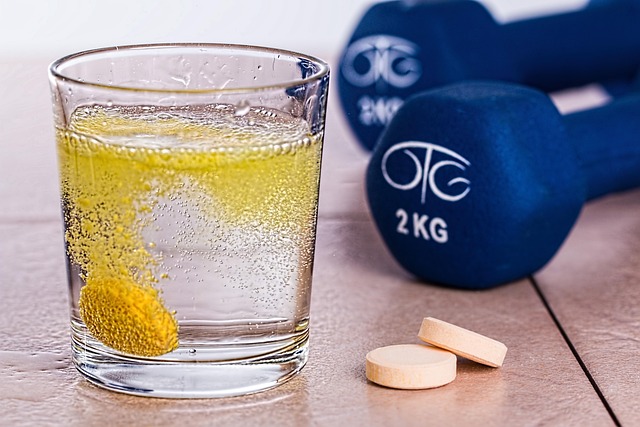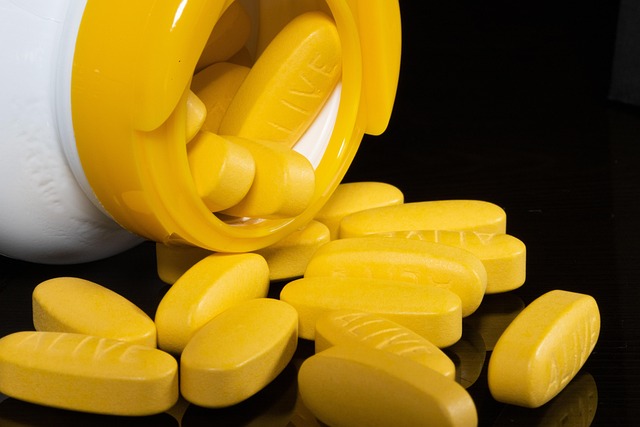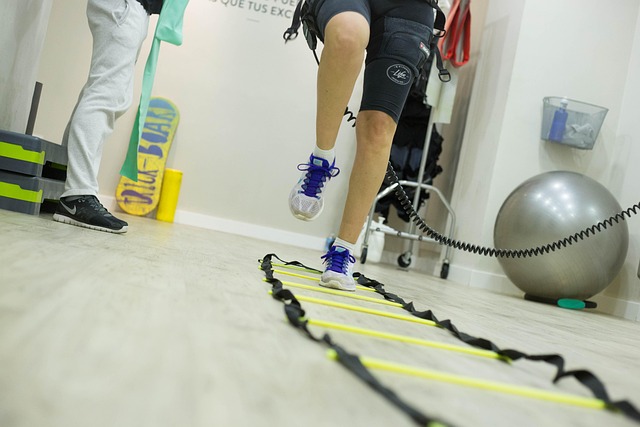In sports injury recovery, proper nutrition accelerates healing and enhances performance. A balanced diet with carbohydrates for energy, high-quality proteins for tissue repair, and essential fatty acids for anti-inflammatory effects is crucial. Key nutrients like protein, vitamin C, zinc, and omega-3s support tissue repair and regeneration. Individualized plans, focusing on short-term inflammation reduction and long-term performance, include easily digestible foods initially, followed by complex carbs and healthy fats as healing progresses. Hydration and strategic nutrient timing further optimize recovery. Consult a registered dietitian for personalized guidance in sports injury recovery plans.
In the quest for optimal sports injury recovery, nutrition plays a pivotal role in supporting tissue repair and regeneration. This comprehensive guide delves into the science behind integrating dietary strategies into your post-injury healing process. From understanding the essential nutrients for optimal recovery to tailoring your diet and implementing practical tips, discover how strategic nutritional choices can enhance your sports injury recovery plans.
- Understanding the Role of Nutrition in Sports Injury Recovery
- Essential Nutrients for Tissue Repair and Regeneration
- Tailoring Your Diet for Optimal Post-Injury Healing
- Practical Tips for Integrating Nutritional Support into Your Recovery Plan
Understanding the Role of Nutrition in Sports Injury Recovery

In the realm of sports injury recovery plans, nutrition plays a pivotal role in facilitating the body’s natural healing process. When an athlete sustains an injury, a well-thought-out nutritional strategy becomes essential to support tissue repair and optimize recovery time. The right balance of macronutrients—carbohydrates, proteins, and fats—is crucial for repairing damaged muscle fibers, stimulating cell growth, and reducing inflammation.
Carbohydrates, in particular, are vital for restoring glycogen stores, providing energy for the body’s healing processes. High-quality proteins, such as those found in lean meats, eggs, and plant-based sources, are necessary for building and repairing tissues. Furthermore, essential fatty acids from foods like fish, nuts, and seeds aid in reducing inflammation and promoting overall cellular health, contributing significantly to a successful sports injury recovery plan.
Essential Nutrients for Tissue Repair and Regeneration

Tissue repair and regeneration require a specific set of essential nutrients that play a crucial role in any sports injury recovery plan. Among the most vital are protein, vitamin C, zinc, and omega-3 fatty acids. Protein is fundamental for muscle repair and the creation of new cells, while vitamin C aids in collagen synthesis, which is critical for connective tissue healing.
Zinc contributes to wound healing by supporting immune function and promoting cell growth, while omega-3 fatty acids reduce inflammation and help restore cellular membranes. Incorporating these nutrients into a balanced diet or through targeted supplements can significantly enhance the effectiveness of sports injury recovery plans, ensuring optimal tissue repair and regeneration.
Tailoring Your Diet for Optimal Post-Injury Healing

When designing a diet to support sports injury recovery plans, individualization is key. Every person’s healing process and nutritional needs are unique, especially after an injury. A balanced approach that considers both short-term and long-term goals is essential. In the acute phase of recovery, focusing on easily digestible foods rich in protein, vitamins, and minerals can aid in inflammation reduction and tissue repair. Foods like lean meats, fish, eggs, yogurt, fruits, and vegetables should be staples.
As an athlete progresses through the healing stages, incorporating complex carbohydrates and healthy fats becomes vital for energy production and overall performance. Tailoring your diet to include these macronutrients ensures the body has the fuel it needs to support active recovery and build back strength. It’s also crucial to stay hydrated and consider complementary strategies like timed nutrient intake during workouts to optimize post-injury healing.
Practical Tips for Integrating Nutritional Support into Your Recovery Plan

When crafting a sports injury recovery plan, integrating nutrition plays a pivotal role in supporting your body’s natural healing process. Focus on a balanced diet rich in lean proteins, complex carbohydrates, and healthy fats to fuel tissue repair and restoration. Include essential amino acids from sources like fish, eggs, and legumes to promote muscle recovery, as these building blocks are crucial for rebuilding damaged tissues.
Practical tips include mealing regularly throughout the day to maintain stable energy levels, consuming a carbohydrate-rich meal or snack before and after exercise, and incorporating nutrient-dense superfoods like berries, leafy greens, and nuts. Stay hydrated by drinking adequate water, especially during intense training sessions or hot weather. Additionally, consider consulting with a registered dietitian who specializes in sports nutrition to personalize your dietary approach based on your specific injury, activity level, and goals.
Integrating proper nutrition into your sports injury recovery plan is a game-changer. By understanding how nutrients facilitate tissue repair and regeneration, you can tailor your diet to optimize healing. Essential vitamins, minerals, and amino acids play crucial roles in this process, so ensure your post-injury meals are packed with these powerhouses. With practical tips like meal planning and supplementing where needed, you can enhance your body’s natural recovery capabilities, ensuring a faster and more effective return to peak performance.
